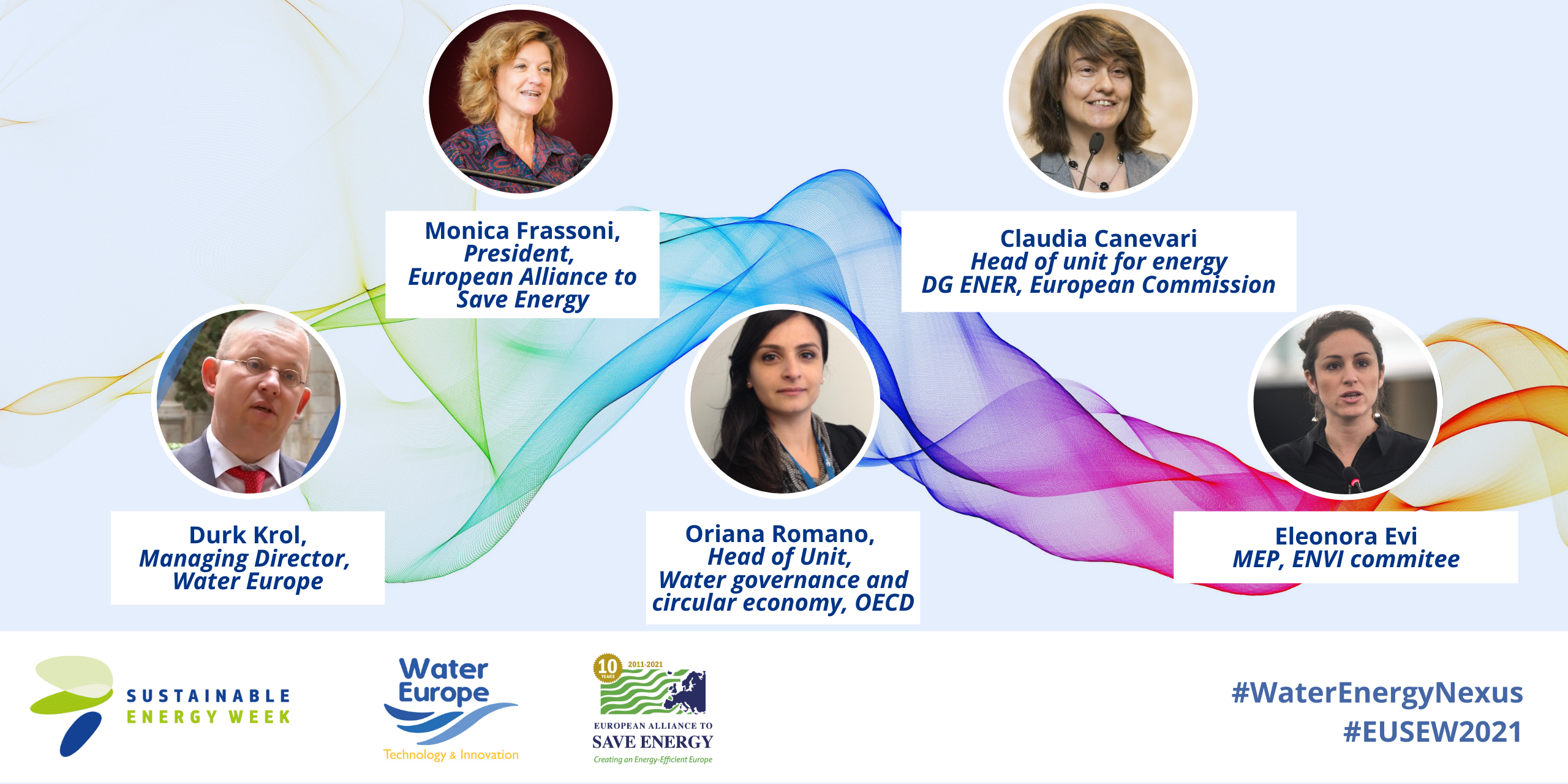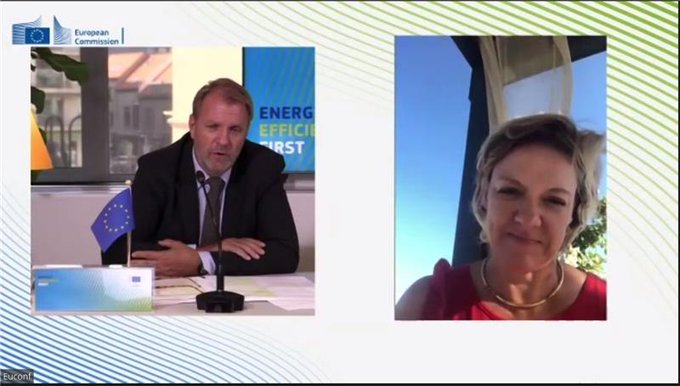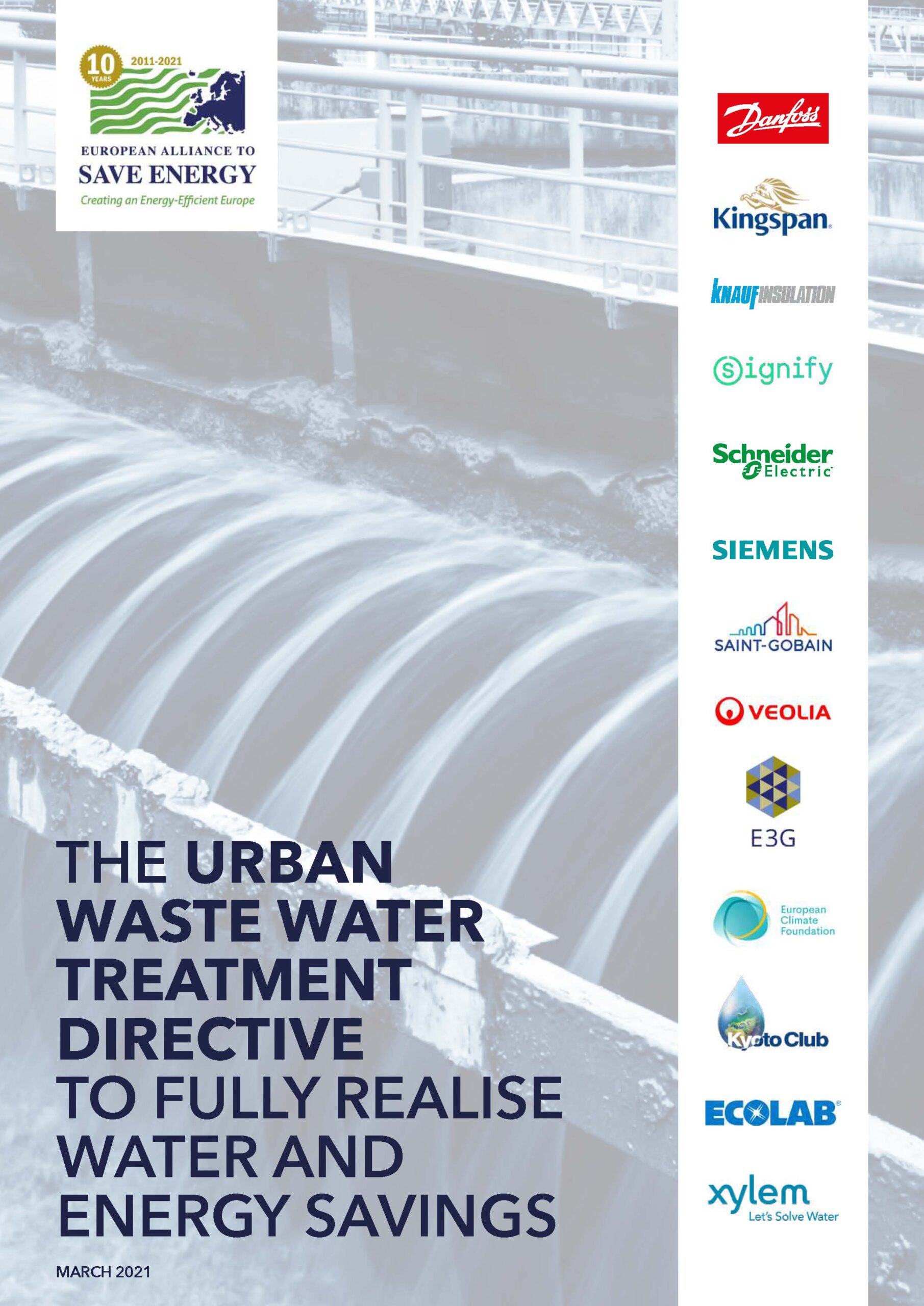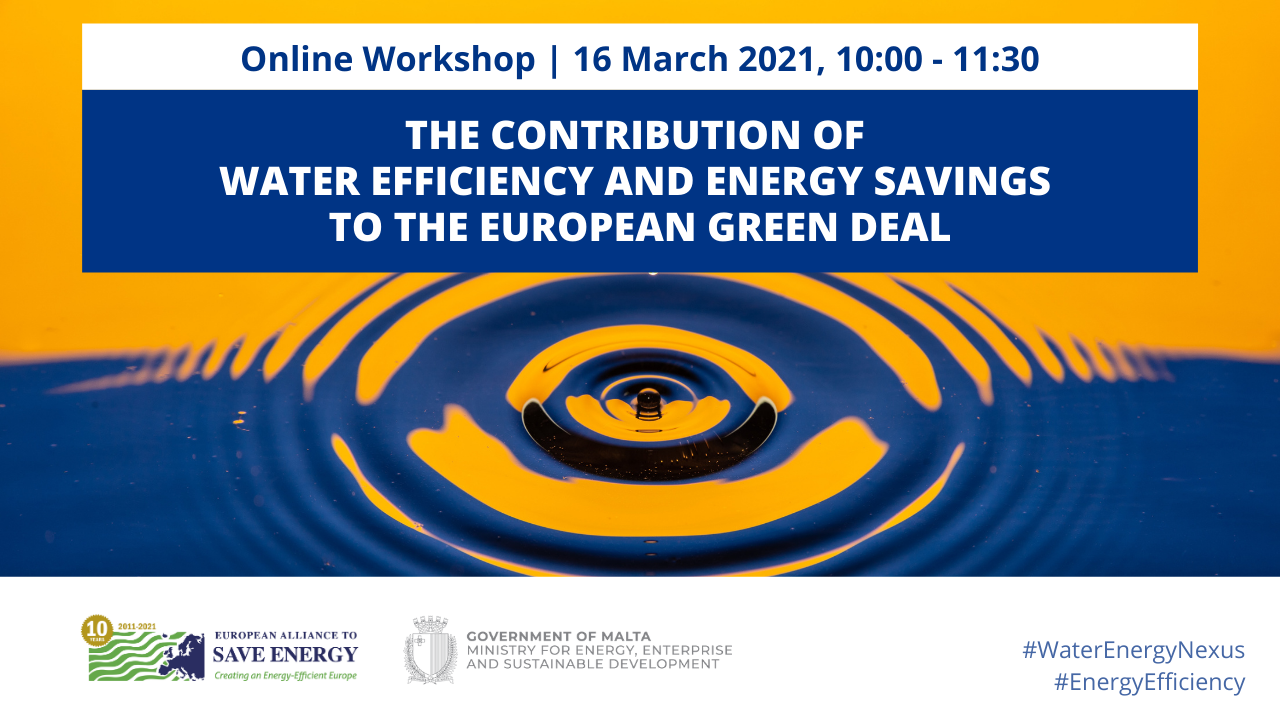Unleash the potential of the water-energy nexus in the energy efficiency directive
The European Alliance to Save Energy (EU-ASE) and Water Europe (WE), call on the European Parliament and the Member States to unleash the potential of the Water-Energy nexus in the Energy Efficiency Directive (EED).
The nexus holds the potential to generate large-scale energy and water savings across sectors and reduce Green House Gases (GHG) emissions. Saving water saves energy and saving energy saves water.
Our joint declaration supports policy makers with 11 recommendations on how to exploit these synergies and achieve greater water, resource and energy efficiencies
- Secure that the energy efficiency first (EE1) principle applies across sectors and all water cycles and that the quality of water used is fit for purpose.
- Create an enabling framework that ensure the delivery of all the benefits deriving from water efficiency.
- Promote water reuse to generate energy savings in water management.
- Facilitate interoperability and easy integration to the energy grid of energy generated by wastewater treatment plants.
- Introduce a mandatory system of assessment for both energy and water usage in industry, water supply systems, wastewater network and treatment plants.
- Provide meaningful incentives to ensure that water suppliers reduce water leakage levels, particularly for large and very large water suppliers.
- Mandate the introduction of green infrastructure and adapt grey infrastructures in cities to reduce the amount of storm water being directly released into wastewater treatment plants.
- Provide incentives to the use of digital technologies and real-time data analytics across water cycles.
- Foster transparency and free-flow of data across EU on water quality and availability, water leakages, system capacity and energy use for water and waste water infrastructure and performance.
- Develop communication standards for data sharing across the water cycle and between national and regional entities.
- Introduce requirements and incentives in the EED for the ICT sector to monitor their energy and water consumption.
Read the full declaration and recommendations here





